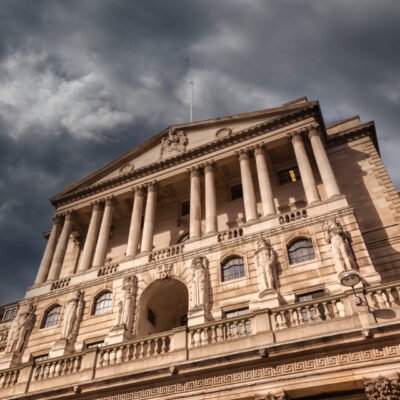Investors in several European commercial mortgage bonds that were originally sold with top credit ratings look set to suffer losses, say analysts, the first time since the global financial crisis that the safest tier of this debt has been hit.
Among those set for losses are holders of the most senior bonds in a commercial mortgage-backed security that originally made a loan to Oaktree Capital Management to finance three UK shopping centres. The recently agreed sale of the underlying properties is expected to raise less than the value of the outstanding debt.
Meanwhile, rating agency Fitch has predicted that investors in the safest tranche of two more CMBS deals, including one set up to lend to Brookfield, are also facing losses.
“Certainly as an investor you wouldn’t expect to see losses at triple-A level, it’s not a good headline,” said Elena Rinaldi, a portfolio manager in the asset-backed securities team at TwentyFour Asset Management.
Rising borrowing costs over the past two years have triggered the worst downturn in commercial real estate since the 2008 global financial crisis, with the value of offices, retail and other assets falling by between a third and a fifth from their 2022 peak in Europe.
More conservative levels of borrowing today than in the run-up to 2008 have meant that signs of distress have been slower to emerge among property investors this time around. However, the latest predictions of losses show that the pain in the property markets is now hitting even the most protected tier of real estate-backed credit investments.
The loan was transferred to Mount Street — a “special servicer” that tries to maximise the recovery for investors — in 2020 after breaching covenants, and has been in default since then.
Elizabeth Finance 2018 DAC, the CMBS vehicle set up to issue the debt, announced last week that Mount Street had accepted a £35mn bid for the shopping centres in King’s Lynn, Dunfermline and Loughborough, known as the Maroon properties. The bid would deliver net proceeds of about £31.5mn to debt investors, it said.
Holders of the most senior bonds are owed £33.6mn, according to Bank of America, and therefore under this proposal are set to incur a 6.3 per cent loss.
“The biggest problem has been interest rates, quite simply,” said James Bannister, head of special servicing at Mount Street. “There’s no money left to do anything with the assets so we had to be honest with investors and say, ‘we can’t do any more, now is the time to move these assets on’.”
The most senior debt issued by Elizabeth Finance, which originally held two loans before one was repaid, was rated triple-A by S&P and Morningstar DBRS in 2018. Oaktree, one of the world’s biggest distressed debt investors, was the original borrower.
Last week DBRS lowered its credit rating on these senior notes to junk for the first time. On Wednesday, S&P did the same.
In 2018, Fitch voiced concerns that these notes did not warrant the triple-A ratings given to them by the other agencies because of the risk associated with the quality of the assets.
UK non-high street retail “is not a left-field credit risk. It’s been bubbling for a long time and the [coronavirus] pandemic was clearly an additional juggernaut that hit the sector and was fairly unkind to those kinds of assets,” said Euan Gatfield, head of Emea CMBS at Fitch.
Following Elizabeth Finance’s announcement last week, Fitch predicted it may be followed by losses for top-tier bondholders in two other European CMBS: Haus DAC and River Green Finance 2020 DAC.
Holders of the most senior debt of Haus CMBS, which is backed by 6,281 multifamily residential housing units across 92 sites in Germany, were also at risk because of falling property values as a result of high vacancy rates, it said.
Brookfield Property Group is the main borrower from the Haus CMBS. Brookfield declined to comment.
In March last year Moody’s downgraded all of the debt issued by Haus DAC, including more than €200mn of top-tier bonds, saying the properties had an average occupancy rate of about 58 per cent and were facing significant delays in planned refurbishments.
“Without a swift turnaround in operating performance, including a [capital expenditure] programme mired in delays and cost overruns, we believe all classes of notes will incur losses,” Fitch analysts wrote. Without top-up payments from Brookfield, the housing securing Haus “would be producing negative net operating income”, it added.
The other CMBS, River Green Finance 2020 DAC, was the first sustainability-focused CMBS in Europe and is secured by an office campus in outer Paris mostly leased to struggling tenant Atos.
Last year Moody’s downgraded all of River Green’s notes and increased the expected loss on the underlying loan after it was not repaid when due. It currently has €98mn in outstanding top-tier bonds.




